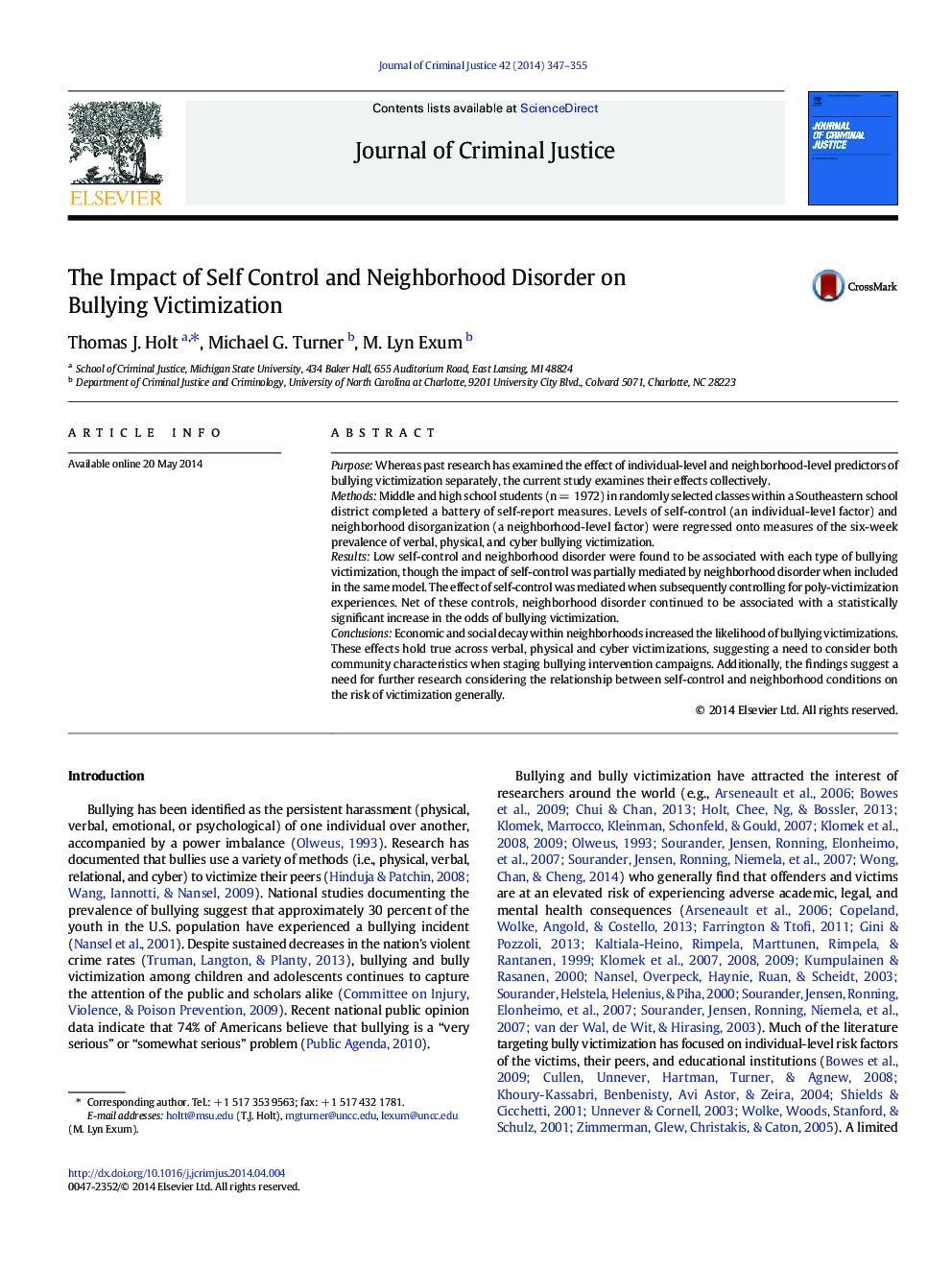| Article ID | Journal | Published Year | Pages | File Type |
|---|---|---|---|---|
| 882674 | Journal of Criminal Justice | 2014 | 9 Pages |
•Neighborhood disorder mediated the self-control-victimization relationship•The effect of self-control was mediated when controlling for bullying victimization•Neighborhood disorder was significant while controlling for bullying victimization•Neighborhood disorder was correlated with bullying victimization on and off-line
PurposeWhereas past research has examined the effect of individual-level and neighborhood-level predictors of bullying victimization separately, the current study examines their effects collectively.MethodsMiddle and high school students (n = 1972) in randomly selected classes within a Southeastern school district completed a battery of self-report measures. Levels of self-control (an individual-level factor) and neighborhood disorganization (a neighborhood-level factor) were regressed onto measures of the six-week prevalence of verbal, physical, and cyber bullying victimization.ResultsLow self-control and neighborhood disorder were found to be associated with each type of bullying victimization, though the impact of self-control was partially mediated by neighborhood disorder when included in the same model. The effect of self-control was mediated when subsequently controlling for poly-victimization experiences. Net of these controls, neighborhood disorder continued to be associated with a statistically significant increase in the odds of bullying victimization.ConclusionsEconomic and social decay within neighborhoods increased the likelihood of bullying victimizations. These effects hold true across verbal, physical and cyber victimizations, suggesting a need to consider both community characteristics when staging bullying intervention campaigns. Additionally, the findings suggest a need for further research considering the relationship between self-control and neighborhood conditions on the risk of victimization generally.
